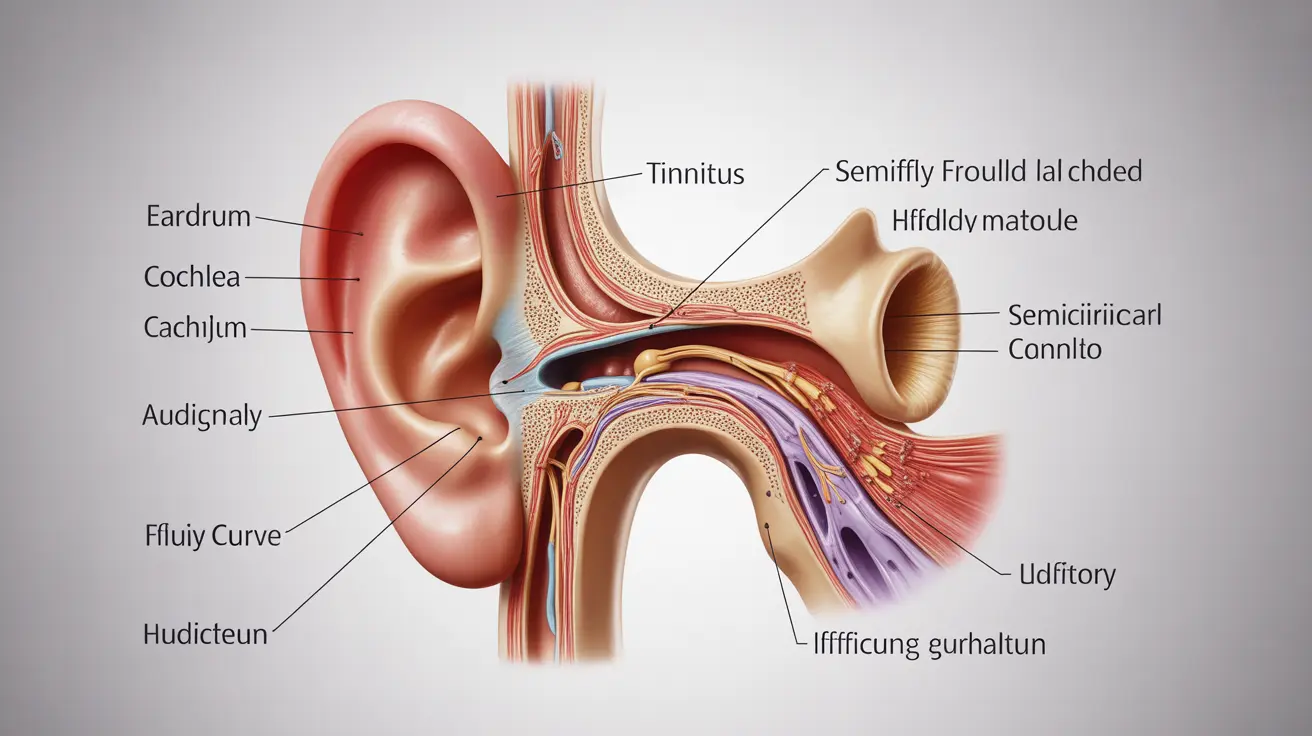Experiencing ringing in your ear after an ear infection can be concerning and frustrating. This persistent sound, medically known as tinnitus, is a common complication that can occur during or after ear infections. Understanding why this happens and knowing what to do about it can help you manage this uncomfortable symptom more effectively.
While ear infections themselves can be painful and disruptive, the lingering ringing sensation afterward adds another layer of discomfort. Let's explore the connection between ear infections and tinnitus, how long it typically lasts, and what treatment options are available.
The Connection Between Ear Infections and Tinnitus
When you develop an ear infection, the inflammation and fluid buildup can affect different parts of your ear, including the eardrum and the delicate structures of your inner ear. This inflammation can interfere with how sound is processed and transmitted, leading to the perception of ringing, buzzing, or whistling sounds even when no external sound is present.
The most common ways ear infections contribute to tinnitus include:
- Inflammation of the middle ear
- Fluid accumulation behind the eardrum
- Temporary damage to the hair cells in the inner ear
- Pressure changes in the ear canal
- Disruption of normal sound transmission
Duration and Recovery Timeline
The duration of tinnitus following an ear infection can vary significantly from person to person. In most cases, the ringing diminishes as the infection clears and inflammation subsides. However, the timeline for recovery depends on several factors:
Typical Recovery Periods
Many people experience temporary tinnitus that resolves within:
- A few days after the infection starts clearing
- 1-2 weeks post-infection
- Up to a month in some cases
Factors Affecting Recovery
Several elements can influence how long the ringing persists:
- Severity of the initial infection
- Promptness of treatment
- Overall ear health
- Age and immune system function
- Previous history of ear problems
Treatment Options and Management Strategies
There are several approaches to managing ringing in the ear after an infection:
Medical Treatments
- Completing the full course of prescribed antibiotics
- Anti-inflammatory medications
- Ear drops for pain relief
- Professional ear cleaning if needed
Self-Care Methods
You can also try these self-management techniques:
- Using white noise machines to mask the ringing
- Avoiding loud noises during recovery
- Keeping the ear dry during healing
- Practicing stress-reduction techniques
- Getting adequate rest to support healing
When to Seek Medical Attention
While some degree of tinnitus after an ear infection is normal, certain situations warrant immediate medical attention:
- Ringing that persists beyond one month
- Severe or worsening tinnitus
- Development of additional symptoms
- Impact on daily activities or sleep
- Signs of recurring infection
Frequently Asked Questions
Why do I experience ringing in my ear after an ear infection? The ringing occurs because ear infections can cause inflammation and fluid buildup that disrupts normal sound processing in your ear. This interference can lead to tinnitus as your auditory system responds to the infection.
How long does tinnitus usually last after an ear infection clears up? In most cases, tinnitus from an ear infection is temporary and resolves within a few days to weeks after the infection clears. However, the exact duration can vary depending on the infection's severity and individual factors.
What treatments can help reduce or stop ringing in the ears after an ear infection? Treatment options include completing prescribed antibiotics, using anti-inflammatory medications, sound therapy, and various self-care methods like avoiding loud noises and using white noise machines.
When should I see a doctor if my ear ringing persists after an ear infection? Consult a doctor if the ringing continues for more than a month, becomes severe, affects your daily activities, or is accompanied by other concerning symptoms.
Can damage from an ear infection cause permanent ringing in the ears? While rare, severe or untreated ear infections can potentially cause permanent tinnitus. However, most cases of post-infection tinnitus are temporary and resolve with proper treatment and time.




